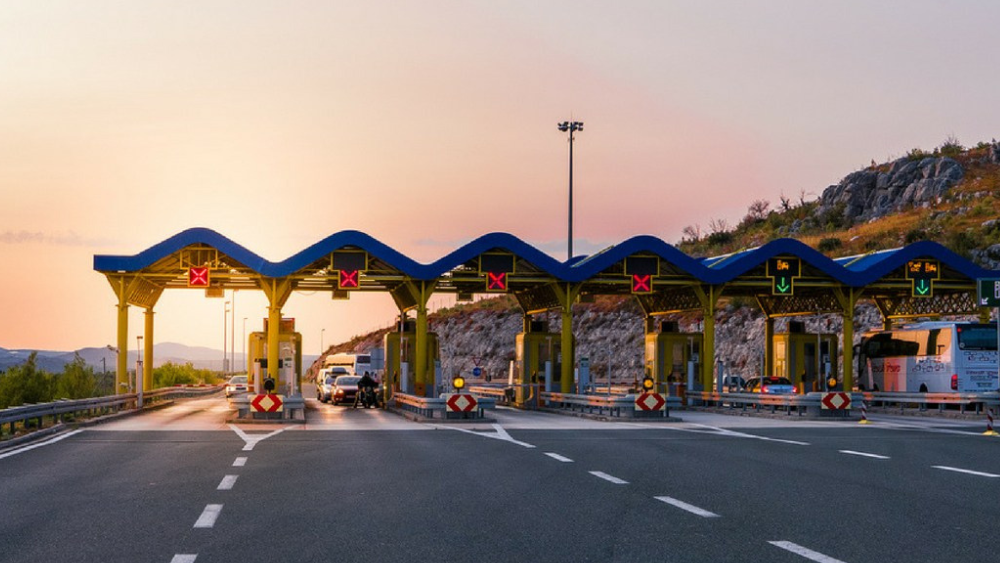
WOMEN’S PARTICIPATION IN INDIA’S STARTUPS
Questions :
Will the Minister of Commerce and Industry be pleased to state:
- the number of startups being launched by women and men separately in India under the Startup India scheme, the details of the figures thereof for the last five years;
- whether Government is of the view that the number of women getting Government assistance for startups is less;
- if so, the details along with the reasons;
- whether Government is running any scheme to increase the participation of women in startups;
- if so, the details thereof; and
- if not, whether there is any plan proposed by Government to increase the participation of women in this field in the coming time?
ANSWER
THE MINISTER OF STATE IN THE MINISTRY OF COMMERCE & INDUSTRY (SHRI SOM PARKASH)
- : As per eligibility conditions prescribed under G.S.R. notification 127 (E) dated 19th February 2019, entities are recognized as startups under Startup India initiative by the Department for Promotion of Industry and Internal Trade (DPIIT). Since the launch of Startup India initiative in 2016, DPIIT has recognised 92,683 entities as startups as on 28th February 2023.
In the last five years viz. 2018, 2019, 2020, 2021 and 2022, a total of 81,000 entities have been recognised as startups by the DPIIT. Out of these, 38,734 startups
i.e. approx. 47% of recognised startups have at least one woman director.
- to (f): The Government launched Startup India initiative on 16th January 2016 with an aim to build a stronger ecosystem for nurturing India’s startup culture that would further drive our economic growth, support entrepreneurship, and enable large-scale employment opportunities. It, inter alia, assists in strengthening women entrepreneurship, through policies and initiatives, and creation of enabling Details of various programs undertaken under Startup India initiative, which are gender neutral, are placed at Annexure-I.
Sustained Government efforts in this direction have resulted in increasing the number of recognized Startups from 442 in 2016 to 92,683 in 2023 (as on 28th February 2023).
Further, Government has also taken following measures to promote women entrepreneurship in the country:
- To promote flow of both equity and debt to women led startups, 10% of the fund (Rs 1000 crore) in the Fund of Funds for Startups Scheme operated by SIDBI is reserved for women led startups.
- Women Capacity Development Programme (WING) is a unique Capacity Development Program for women-led startups, to identify and support both aspiring and established women entrepreneurs in their startup The workshops are open to variety of business sectors including Tech, Construction, Product, Machine, Food, Agriculture, Education, etc. The workshops served as a platform for emerging women entrepreneurs and other stakeholders to discuss the key challenges facing womenentrepreneurs. WING workshops have created a conducive environment to share best practices and experiences in overcoming challenges and to gain insights learned from the business models adopted in the Indian context. A total of 24 workshops were conducted across 9 States, benefiting more than 1,300 women entrepreneurs.
- Virtual Incubation Program for Women Entrepreneurs were conducted in collaboration with Zone Startups to support 20 women-led tech startups with pro-bono acceleration support for 3 months.
- A webpage dedicated to women entrepreneurs has been designed on the Startup India portal. The page includes various policy measures for women entrepreneurs by both Central and State Governments.
- Through its various awareness programmes and capacity building programmes organized by the Government, and through print media and social media platforms, the Government also creates awareness about the existing schemes which support micro, small and medium entrepreneurs, including women entrepreneurs.
Furthermore, assisted by the States’ Startup Rankings on Support to Startup Ecosystems, which is primarily an exercise to identify good practices including support to women entrepreneurs, learning from each other and helping each other in formulating and implementing policies in true spirit of cooperative federalism, 31 States and UTs have notified policies to support startups.
To identify the depth, quality and spread of innovation, inclusivity and diversity, and entrepreneurship in country, the Government instituted the National Startup Awards (‘NSA’). The winners of NSA have emerged from Bengaluru, Delhi, Hyderabad Chennai, Mumbai Mysuru, Bhopal, Ernakulam, Gurugram, Kochi, Lucknow, Margao, Sonipat, Tiruvanantpuram etc. All three editions (2020, 2021 and 2022) of NSA had a special award category for Women-led Startups.
The Government has also launched the Women Entrepreneurship Platform (WEP) in 2018 as an aggregator platform with the aim to overcome information asymmetry in the women entrepreneurial ecosystem. By showcasing all existing initiatives and providing domain knowledge it works towards empowering both prospective and present women entrepreneurs.
ANNEXURE REFERRED TO IN REPLY TO PARTS (b) TO (f) OF THE RAJYA SABHA USTARRED QUESTION NO. 1963 FOR ANSWER ON 17.03.2023.
Programs Implemented under Startup India initiative
The details of various programs undertaken by the Government to promotestartups under Startup India initiative across the country are as under:
Startup India Action Plan: An Action Plan for Startup India was unveiled on 16thJanuary 2016. The Action Plan comprises of 19 action items spanning across areas such as “Simplification and hand-holding”, “Funding support and incentives” and “Industry- academia partnership and incubation”. The Action Plan laid the foundation of Government support, schemes and incentives envisaged tocreate a vibrant startup ecosystem in the country.
Fund of Funds for Startups (FFS) Scheme: The Government has established FFS with corpus of Rs. 10,000 crore, to meet the funding needs of startups.DPIIT is the monitoring agency and Small Industries Development Bank of India (SIDBI) is the operating agency for FFS. The total corpus of Rs. 10,000 crore is envisaged to be provided over the 14th and 15th Finance Commission cycles based on progress of the scheme and availability of funds. It has not only made capital available for startups at early stage, seed stage and growth stage but alsoplayed a catalytic role in terms of facilitating raising of domestic capital, reducing dependence on foreign capital and encouraging home grown and new venture capital funds.
Credit Guarantee Scheme for Startups (CGSS): The Government has established the Credit Guarantee Scheme for Startups for providing credit guarantees to loans extended to DPIIT recognized startups by Scheduled Commercial Banks, Non-Banking Financial Companies (NBFCs) and Venture Debt Funds (VDFs) under SEBI registered Alternative Investment Funds. CGSS is aimed at providing credit guarantee up to a specified limit against loans extended by Member Institutions (MIs) to finance eligible borrowers viz. DPIIT recognised startups.
Regulatory Reforms: Over 50 regulatory reforms have been undertaken by the Government since 2016 to enhance ease of doing business, ease of raising capital and reduce compliance burden for the startup ecosystem.
Ease of Procurement: To enable ease of procurement, Central Ministries/ Departments are directed to relax conditions of prior turnover and prior experience in public procurement for all DPIIT recognised startups subject to meeting quality and technical specifications. Further, Government e-Marketplace (GeM) Startup Runway has been developed which is a dedicated corner for startups to sell products and services directly to the Government.
Support for Intellectual Property Protection: Startups are eligible for fast- tracked patent application examination and disposal. The Government launched Start-ups Intellectual Property Protection (SIPP) which facilitates the startups to file applications for patents, designs and trademarks through registered facilitators in appropriate IP offices by paying only the statutory fees. Facilitators under this Scheme are responsible for providing general advisory on different IPRs, and information on protecting and promoting IPRs in other countries. The Government bears the entire fees of the facilitators for any number of patents, trademark or designs, and startups only bear the cost of the statutory feespayable. Startups are provided with an 80% rebate in filing of patents and 50% rebate in filling of trademark vis-a-vis other companies.
Self-Certification under Labour and Environmental laws: Startups are allowed to self- certify their compliance under 9 Labour and 3 Environment laws for a period of 3 to 5 years from the date of incorporation.
Income Tax Exemption for 3 years: Startups incorporated on or after 1st April 2016 can apply for income tax exemption. The recognized startups that are granted an Inter- Ministerial Board Certificate are exempted from income-tax for aperiod of 3 consecutive years out of 10 years since incorporation.
International Market Access to Indian Startups: One of the key objectives under the Startup India initiative is to help connect Indian startup ecosystem to global startup ecosystems through various engagement models. This has been done though international Government to Government partnerships, participationin international forums and hosting of global events. Startup India has launched bridges with over 15 countries (Brazil, Sweden, Russia, Portugal, UK, Finland, Netherlands, Singapore, Israel, Japan, South Korea, Canada, Croatia, Qatar andUAE) that provides a soft-landing platform for startups from the partner nations and aid in promoting cross collaboration.
Faster Exit for Startups: The Government has notified Startups as ‘fast track firms’ enabling them to wind up operations within 90 days vis-a-vis 180 days for other companies.
Startup India Hub: The Government launched a Startup India Online Hub on19th June 2017 which is one of its kind online platform for all stakeholders of the entrepreneurial ecosystem in India to discover, connect and engage with each other. The Online Hub hosts Startups, Investors, Funds, Mentors, Academic Institutions, Incubators, Accelerators, Corporates, Government Bodies and more.
Exemption for the Purpose Of Clause (VII)(b) of Sub-section (2) of Section 56 of the Act (2019): A DPIIT recognized startup is eligible for exemption from the provisions of section 56(2)(viib) of the Income Tax Act.
Startup India Showcase: Startup India Showcase is an online discovery platform for the most promising startups of the country chosen through various programs for startups exhibited in a form of virtual profiles. The startups showcased on the platform have distinctly emerged as the best in their fields. These innovations span across various cutting- edge sectors such as Fintech, EntrepriseTech, Social Impact, HealthTech, EdTech, among others. These startups are solving critical problems and have shown exceptional innovation in their respective sectors. Ecosystem stakeholders have nurtured and supported these startups, thereby validating their presence on this platform.
National Startup Advisory Council: The Government in January 2020 notified constitution of the National Startup Advisory Council to advise the Governmenton measures needed to build a strong ecosystem for nurturing innovation and startups in the country to drive sustainable economic growth and generate large scale employment opportunities. Besides the ex-officio members, the council hasa number of non-official members, representing various stakeholders from the startup ecosystem.
Startup India: The Way Ahead: Startup India: The Way Ahead at 5 years celebration of Startup India was unveiled on 16th January 2021 which includes actionable plans for promotion of ease of doing business for startups, greaterrole of technology in executing various reforms, building capacities of stakeholders and enabling a digital Aatmanirbhar Bharat.
Startup India Seed Fund Scheme (SISFS): Easy availability of capital is essential for entrepreneurs at the early stages of growth of an enterprise. The capital required at this stage often presents a make-or-break situation for startups with good business ideas. The Scheme aims to provide financial assistance to startups for proof of concept, prototype development, product trials,market entry and commercialization. Rs. 945 crore has been sanctioned under the SISFS Scheme for period of 4 years starting from 2021-22.
National Startup Awards (NSA): National Startup Awards is an initiative to recognize and reward outstanding startups and ecosystem enablers that are building innovative products or solutions and scalable enterprises, with high potential of employment generation or wealth creation, demonstrating measurable social impact. Handholding support is provided to all the finalists across various tracks viz. Investor Connect, Mentorship, Corporate Connect,Govt. Connect, International Market Access, Regulatory Support, Startup Champions on Doordarshan and Startup India Showcase, etc.
States’ Startup Ranking Framework (SRF): States’ Startup Ranking Framework is a unique initiative to harness strength of competitive federalism and create a flourishing startup ecosystem in the country. The major objectivesof the ranking exercise are facilitating states to identify, learn and replace good practices, highlighting the policy intervention by states for promoting startupecosystem and fostering competitiveness among states.
Startup Champions on Doordarshan: Startup Champions program on Doordarshan is a one-hour weekly program covering stories of award winning/ nationally recognised startups. It is telecasted in both Hindi and English across
Doordarshan network channels.
Startup India Innovation Week: The Government organises Startup India Innovation week around the National Startup Day i.e. 16th January, with the primary goal was to bring together the country’s key startups, entrepreneurs, investors, incubators, funding entities, banks, policymakers, and other national/international stakeholders to celebrate entrepreneurship and promote innovation.




